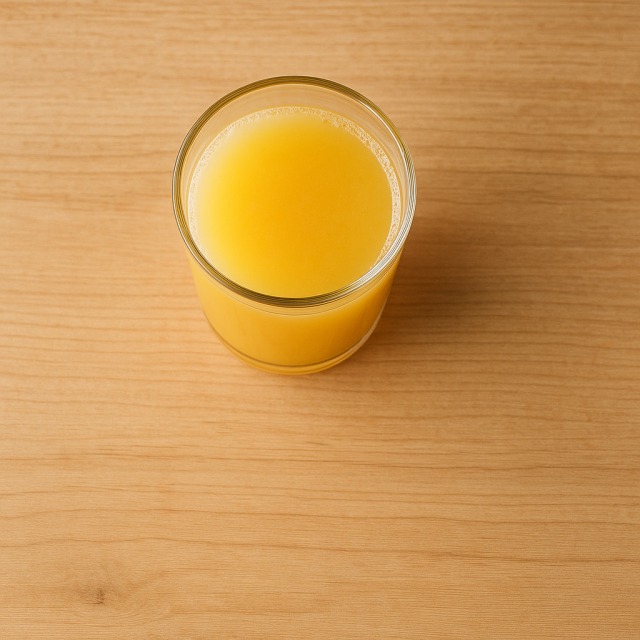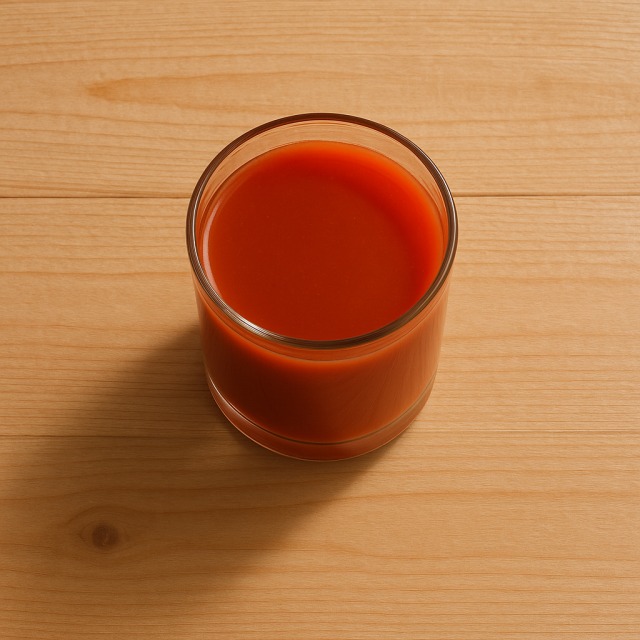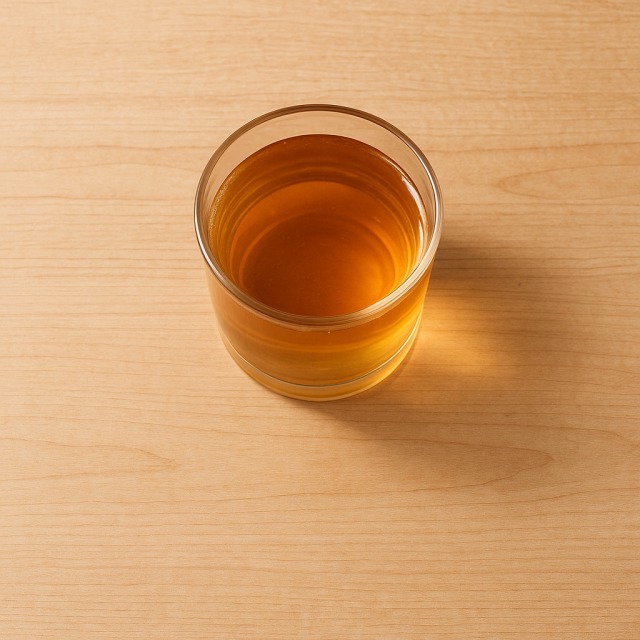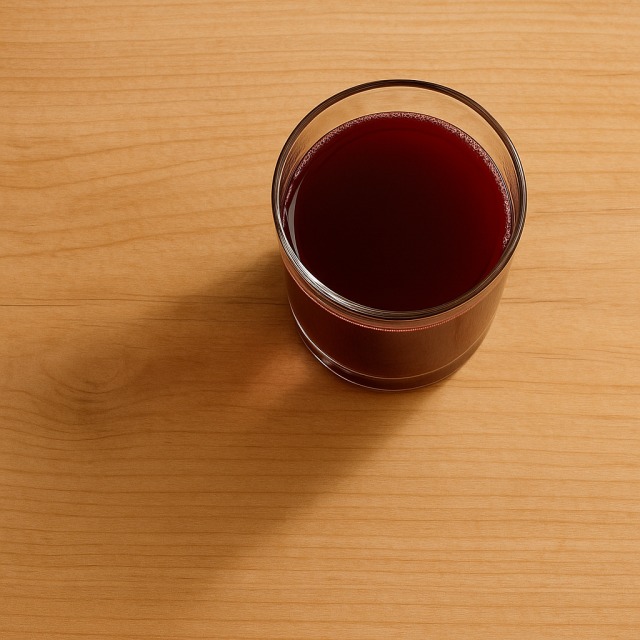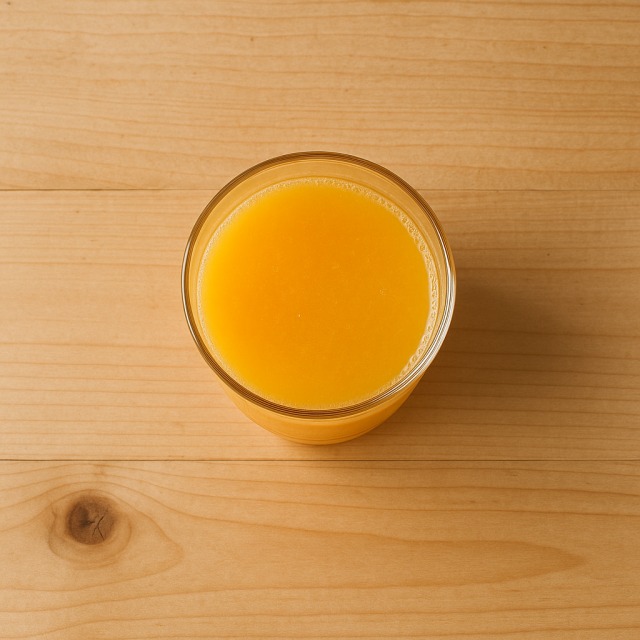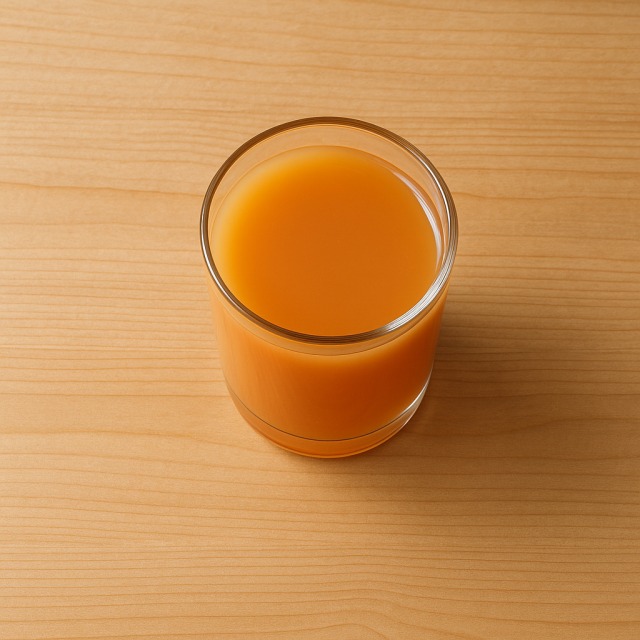Calorie Chart / Beverages / Juice - Apricot
How Many Calories Are in Apricot juice?
Calculation of the nutritional value & Recommended Dietary Intake of apricot juice
For ml and a calorie requirement of kcal
| Calories 140 kcal | Proteins 1.3 g | Lipids 0 g | Carbohydrates 34 g |
| 7% | 2% | 0% | 12% |
Health benefits of apricot juice
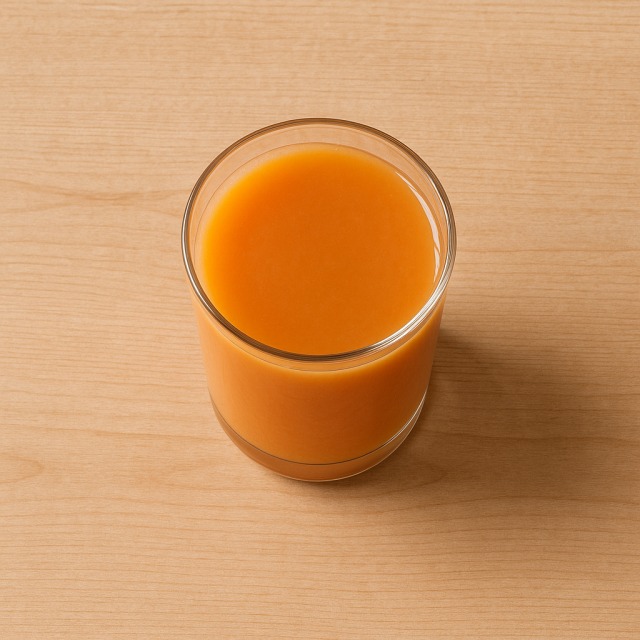
Apricot juice - 100ml
Calories 56 kcal
Proteins 0.5 g
Lipids 0 g
Carbohydrates 13.5 g
Apricot juice is a moderate-calorie beverage, which means it delivers energy without the calorie overload of many industrial sodas. This balance of calories makes it attractive to people watching their daily calorie intake while still wanting a sweet, fruity note in their diet.
Rich in provitamin A (beta-carotene), vitamin C, and small amounts of vitamin E, apricot juice supports normal vision and immune defenses. Potassium contributes to normal blood-pressure regulation, while trace minerals such as iron and copper help with oxygen transport and enzymatic reactions. Because these micronutrients come in liquid form, they are quickly absorbed—an advantage when you need nutrients but do not want to add too many calories in one sitting.
The natural orange hue is due to carotenoids, plant antioxidants that are being studied for their supposed role in skin photoprotection. Although the juice contains less fiber than the whole apricot, it still retains a fraction of soluble pectins that can facilitate gentle digestion. All these qualities make apricot juice a pleasant way to diversify your hydration strategy without pushing your calories sky-high; in fact, many athletes choose it during recovery precisely for the ratio between fast carbohydrates and moderate calories.
Historically, apricots traveled the Silk Road from China to the Mediterranean, and pressing them into juice was a method used in Armenia and Persia to preserve the fruit harvest. Today the same tradition can form part of a modern, calorie-conscious diet. With its balanced calorie profile and bright taste, apricot juice continues to bridge heritage and health.
Tips for incorporating apricot juice into a balanced diet
To keep calories in check while maximizing flavor, use apricot juice as the liquid base of a breakfast smoothie: blend it with plain yogurt, a handful of almond pieces, and a drizzle of honey. This gives a creamy consistency and adds protein without dramatically boosting calories.
For a light lunch, replace high-calorie sodas with a chilled glass of apricot juice alongside a grilled chicken breast salad. The sweet–savory combination satisfies the palate while helping you keep total calories under control.
Apricot juice also shines in savory creations: reduce it with ginger and a dash of soy sauce to glaze baked salmon. The resulting dish feels gourmet, yet its calories remain reasonable compared with butter-based sauces.
If you crave dessert but are counting calories, prepare light apricot-juice jelly. Sweeten slightly, add agar-agar, and serve with diced peach or raspberry. You obtain volume and freshness without piling on calories the way cream pastries would.
Last tip: swap some of the sugary syrup in a homemade fruit salad for apricot juice. You boost taste and micronutrients, cut refined sugar, and keep overall calories in a smarter range.
Frequently Asked Questions
- How many calories are in apricot juice?
- Apricot juice provides 56 kcal per 100 g.
- Is apricot juice low or high in calories compared with orange juice?
- With 56 kcal per 100 g, apricot juice is in the moderate-calorie range, slightly higher than orange juice, but far lower than many sweetened soft drinks.
- Can I drink apricot juice during a calorie-controlled weight-loss plan?
- Yes, as long as you account for its calories in your daily total. Its moderate calories and fast carbohydrates make it a suitable treat when balanced with lean proteins and vegetables.
- Does apricot juice have fewer calories than soda?
- Most classic sodas exceed 90 kcal per 100 g, so apricot juice generally delivers fewer calories while offering vitamins and minerals instead of empty sugar.
- How can athletes use apricot juice without overshooting their calories?
- Sipping a small glass (150 ml) after training replenishes glycogen with roughly 84 kcal—enough for recovery without excessive calories that might impair body-composition goals.
Similar foods
Information provided by Calorie Menu may contain inaccuracies or errors. It cannot, under any circumstances, substitute medical advice or medication.
